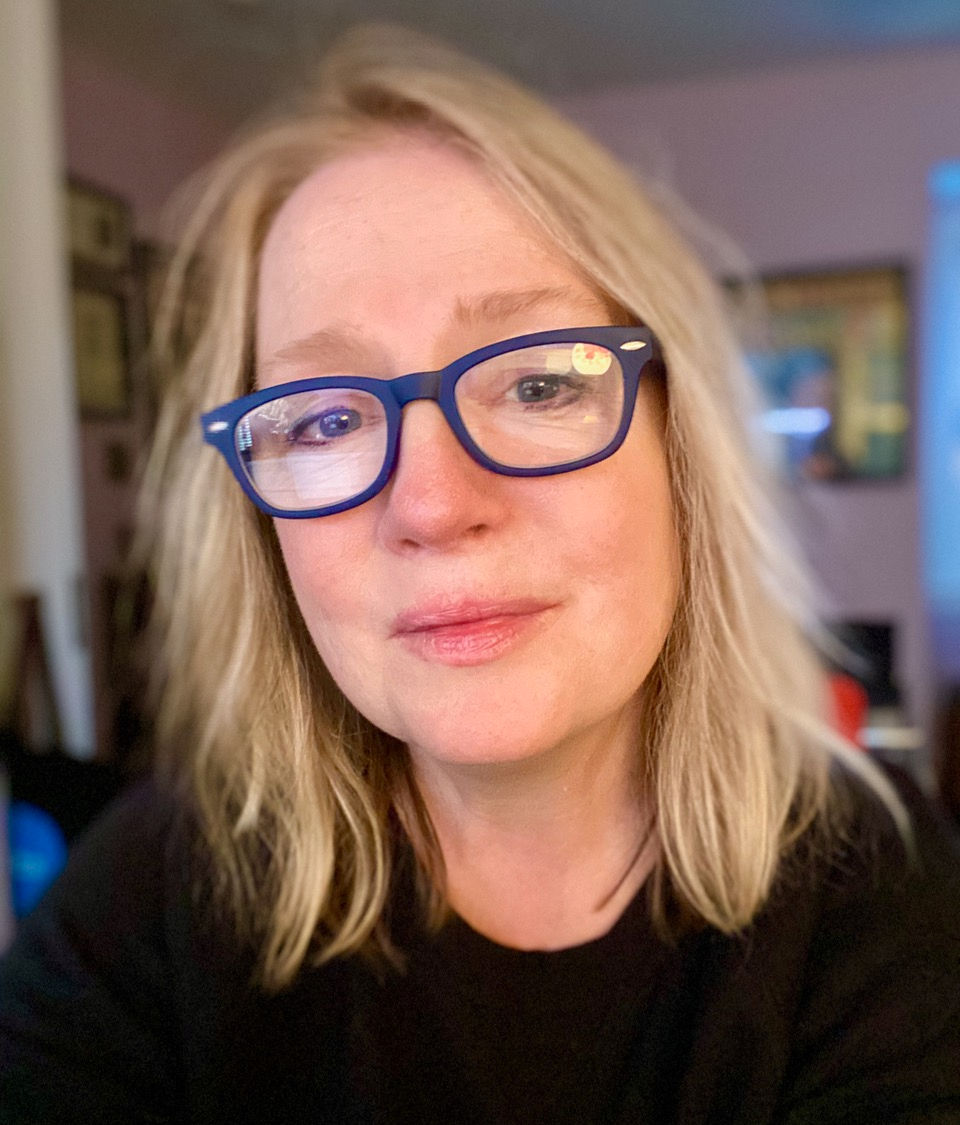WALK
She said I looked like a faggot when I walked.
Something about the way my arms swung.
We had a membership at the city rec center
where she’d walk the indoor track and I’d use
the treadmills. I liked looking over the track
through the window to the pool where kids and seniors
had swim lessons. She said I sounded pathetic talking
about children. She said when she left me
she’d take all the kitchenware because I knew nothing
about cooking before we’d met. And by all the kitchenware,
she meant also the refrigerator and stove.
You have only yourself to blame, she said often.
Some of the pool kids must be out of high school by now.
Some of the seniors, dead. But I’m still angry,
angrier in fact, revealing something about my tendency
to hold a grudge, but also perhaps saving me
from a worse tendency toward inaction in the face of abuse,
one response to bullying I’ve held to all my life.
I walk outdoors now. I composed these words
walking. I sometimes wonder if anyone else notices
the way I swing my arms and can’t help but think of her
as I do. A doe on the berm crossed the two-lane road
as I thought these things. She was alone and I worried
about her crossing, turned back often on my path to watch.
Would others follow? How would I signal drivers if I had to?
All the while seeing how beautiful she was
and how this might be the epiphany in someone’s poem.
Anger and grace. Worry and wildness. The movement
toward instead of away. She made it across unharmed
and eventually I lost sight of her as we each pursued our purpose,
not redemption but survival, which I understand
to mean, I have only myself to forgive.
NOW I DRIVE STRAIGHT THROUGH
From you on whom I learned life lessons,
I beg forgiveness. Those who learned
Their lessons on me, I do not forgive.
Drop it, you might say,
As to a dog with a dead thing in its mouth.
And it’s true, when I get a good hold, I carry
It. To your hands that smell of strawberry,
To your hair curling like smoke up to the clouds,
Cumulus clouds, their curves softer
Than my own. How glad I am then
To be anything that knows what it is.
SONG
Shrouding them in fog, protecting them
from hunters, mountain lions, cruel boys,
the angels love the deer this morning more
than they love me. In the baby changing
room of the rest stop, crowned with treetops soft
as sparrows in a dust bath, a woman sings
“The Wheels on the Bus” as often as it takes
to keep a child from screaming. Round they go:
her voice, steady, clear, and calm; the child
fussing in fits and starts. Round and round,
all through the town, beyond the highway, woods,
and fog. By now, I’ve learned the route by heart.

KATHY FAGAN’s sixth poetry collection, winner of the William Carlos Williams Poetry Prize, is Bad Hobby (Milkweed Editions, 2022). Sycamore (Milkweed, 2017) was a finalist for the 2018 Kingsley Tufts Award. A 2023 Guggenheim Fellow, she teaches poetry at The Ohio State University, where she co-founded the MFA Program and co-edits The Journal/OSU Press Wheeler Poetry Prize Series.


Toto macau
Toto macau
Toto Slot
Rdtoto
Rdtoto
Rdtoto
good
AV在线看 AV在线看;
自拍流出 自拍流出;
国产视频 国产视频;
日本无码 日本无码;
动漫肉番 动漫肉番;
吃瓜专区 吃瓜专区;
SM调教 SM调教;
ASMR ASMR;
国产探花 国产探花;
强奸乱伦 强奸乱伦;
代发外链 提权重点击找我;
谷歌蜘蛛池 谷歌蜘蛛池;
Fortune Tiger…
Fortune Tiger…
谷歌权重提升/ 谷歌权重提升;
谷歌seo 谷歌seo;
谷歌霸屏 谷歌霸屏
蜘蛛池 蜘蛛池
谷歌快排 谷歌快排
Google外链 Google外链
谷歌留痕 谷歌留痕
Gái Gọi…
Gái Gọi…
Dịch Vụ…
谷歌霸屏 谷歌霸屏
负面删除 负面删除
币圈推广 币圈推广
Google权重提升 Google权重提升
Google外链 Google外链
google留痕 google留痕
代发外链 提权重点击找我;
谷歌蜘蛛池 谷歌蜘蛛池;
Fortune Tiger…
Fortune Tiger…
谷歌权重提升/ 谷歌权重提升;
谷歌seo 谷歌seo;
谷歌霸屏 谷歌霸屏
蜘蛛池 蜘蛛池
谷歌快排 谷歌快排
Google外链 Google外链
谷歌留痕 谷歌留痕
Gái Gọi…
Gái Gọi…
Dịch Vụ…
谷歌霸屏 谷歌霸屏
负面删除 负面删除
币圈推广 币圈推广
Google权重提升 Google权重提升
Google外链 Google外链
google留痕 google留痕
代发外链 提权重点击找我;
游戏推广 游戏推广;
Fortune Tiger Fortune Tiger;
Fortune Tiger Slots Fortune…
谷歌马甲包/ 谷歌马甲包;
谷歌霸屏 谷歌霸屏;
מכונות ETPU מכונות ETPU;
;ماكينات اي تي بي…
آلات إي بي بي…
ETPU maşınları ETPU maşınları;
ETPUマシン ETPUマシン;
ETPU 기계 ETPU 기계;